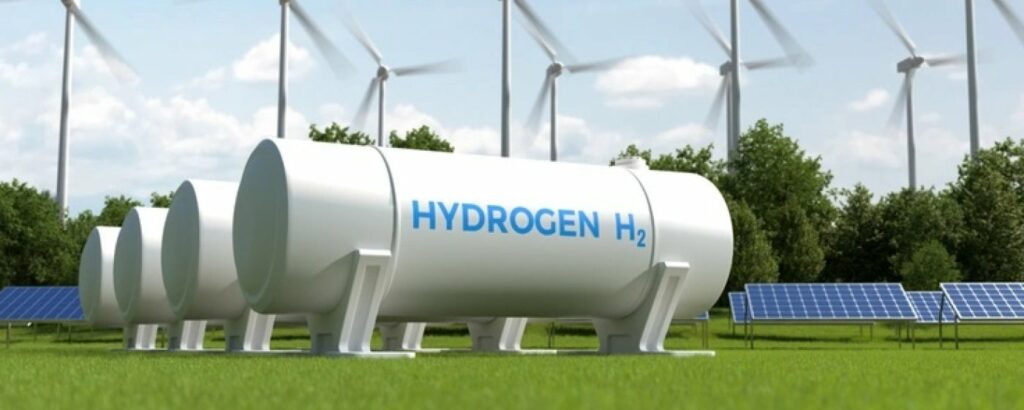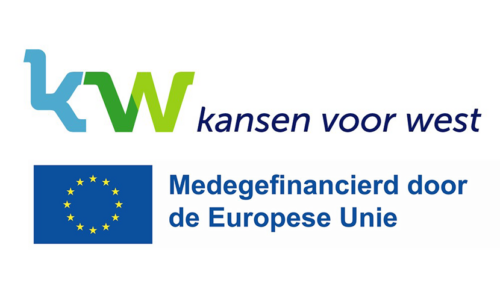Do you want to do something with hydrogen in your company as an entrepreneur? Then make sure you prepare the permit application well, because that prevents unnecessarily long procedures. But where do you start and what do you need if you want to convert a surplus of wind or solar energy into hydrogen as an entrepreneur? The Q&A Hydrogen answers the most frequently asked questions.
Anyone who wants to get started with hydrogen is entering a complex and unfamiliar area for many entrepreneurs. Aldert Kluft (photo below), who was closely involved in the development of the Q&A hydrogen as a permit issuer at the North Sea Canal Area Environmental Service (OD NZKG): “When applying, you have to deal with various environmental factors, such as space, noise, safety, nature, air quality, possible waste materials and so on. Major parties such as Shell and Vattenfal often engage a consultancy firm for this. They know exactly what information is needed and which paths they need to take. But if you have to figure everything out yourself, it is a lot more difficult.”

The Q&A was created with input from four regional Environmental Services (North Sea Canal Area, IJmond, North Holland North and Flevoland) and Fieldlab Hydrogen in Agri. Kevin Schaap, who also works at ODZKG, notes that the Q&A was not only developed for the agricultural sector, other sectors can also benefit from it. “But we do focus specifically on entrepreneurs in North Holland with small-scale initiatives. Think of a farmer with a windmill who wants to store his energy as hydrogen.”
The Q&A is intended to prevent good ideas from failing prematurely or getting off the ground unnecessarily difficultly. A common mistake that entrepreneurs make is that they consult with their own municipality in advance. "While the province is the competent authority. These are unnecessary steps that delay the entire process," Kluft knows. Sound preparation is crucial for a good chance of success, he and Schaap emphasize. "If entrepreneurs enter the process unprepared, this often leads to lengthy processes or an incomplete application. There is even a risk that the application will not be processed."
Schaap has seen interest in hydrogen increase recently. Entrepreneurs in the agricultural sector are also seeing more and more opportunities to start with hydrogen. “I recently worked on an initiative in Flevoland, by coincidence. Several farmers want to use electrolysers to convert solar or wind energy into hydrogen and give it a useful destination by connecting the hydrogen to a tank and using it for their own vehicles.” Kluft adds: “We want to help these kinds of initiatives get started with practical advice.”
To help entrepreneurs get off to a smooth start, the Q&A document provides all the basic information and many references. “Of course, every hydrogen initiative is slightly different. That is why we look together with entrepreneurs at what is needed in a specific situation. How long does a permit application take? That depends largely on the type of permit and the environmental impact. If you want to produce hydrogen and are subject to a permit, you automatically end up in an extensive procedure. That takes six months.”


De Q&A is een dynamisch document dat voortdurend zal worden geüpdatet. Dat is nodig ook, want de overheid is volop bezig met het finetunen van de wet- en regelgeving. Waar we over vijf jaar staan met waterstof, vindt Kluft dan ook lastig te voorspellen. “We hopen dat ondernemers met kleinere waterstofinitiatieven dan de juiste routes weten te bewandelen. Als het gaat om initiatieven op grote schaal is de houding nog afwachtend. De complete driehoek van producenten, afnemers en de infrastructuur moet tegelijk een verandering doormaken. Dat kost tijd. De energietransitie is een veelomvattend proces dat in stapjes gaat plaatsvinden.”
The ten most important questions about hydrogen initiatives can be found at the bottom this webpageThe complete Q&A document can be found on the right side of this page and can be downloaded via the button below.
Fieldlab Waterstof in Agri wordt mede mogelijk gemaakt door steun vanuit het Europees Fonds voor Regionale Ontwikkeling (EFRO), via het programma Kansen voor West.